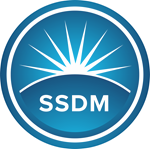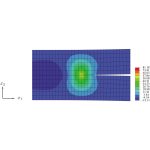Jeonbuk National University Leverages VABS for Deep Learning-based Helicopter Rotor Blade Design
University conducts computational structural analysis of helicopter rotor blades

West Lafayette, Indiana (USA) – AnalySwift, LLC, a provider of efficient high-fidelity modeling software for composites, announced today that Jeonbuk National University is participating in its Academic Partner Program (APP), and it is using its VABS simulation software for researching cross-sectional designs of helicopter rotor blades. The work is part of the research being conducted in the Computational Aeroelasticity and Structural Laboratory (CAeSL).
The APP offers participating universities no-cost licenses of engineering software programs VABS and SwiftComp so students, researchers, and faculty can leverage the tools in their academic research.
The VABS program is a general-purpose cross-sectional analysis tool for computing beam properties and stress, strains, strengths of slender composite structures. It is a powerful tool for modeling composite helicopter, air mobility/eVTOL, UAV/drone and wind turbine rotor blades, as well as other slender composite structures, such as propellers, landing gear, and high-aspect ratio wings.
“We are excited by the work being done by the Jeonbuk National University and pleased they have selected VABS as part of their composite rotor blade design efforts,” said Allan Wood, president & CEO of AnalySwift. “As an efficient and versatile cross sectional analysis tool, VABS delivers high-fidelity results early on, reduces design cycle, and shortens time to market.”
“We studied deep learning-based helicopter rotor blade cross-section design,” said Byeongju Kang, a graduate student at Jeonbuk National University working under the direction of Prof. Haeseong Cho. “Our Computational Aeroelasticity and Structural Laboratory (CAeSL) performs computational structural and aeroelastic analysis of a variety of objects, most notably helicopter fuselage and rotor blades.”
“As an example of ongoing research, we are conducting research on surrogate model design to reduce computational costs in the cross-sectional design process of rotor blades using deep learning,” continued Kang. “Therefore, during the research process, VABS and PreVABS are used to generate sampling data such as rotor blade cross-section modeling and analysis results for learning and verifying surrogate models. VABS is used for analysis of rotor blade cross-sectional properties, while PreVABS is used to discretizate blade cross section to get the node and element data. Below are several images of results obtained through VABS during the research process.”

An example of discretized geometry for blade cross-section design. (Image provided by Jeonbuk National University)

Generating sampling data for learning a surrogate model and checking the stiffness distribution of the data, as well as overview of input and output of each surrogate mode. (Image provided by Jeonbuk National University)
“The VABS program is a uniquely powerful tool for modeling composite blades, high aspect ratio wings, and other slender structures, commonly called beams,” said Dr. Wenbin Yu, CTO of AnalySwift. “VABS reduces analysis time from hours to seconds by quickly and easily achieving the accuracy of detailed 3D finite element analysis (FEA) with the efficiency of simple engineering models. With VABS, engineers can calculate the most accurate, complete set of sectional properties such as torsional stiffness, shear stiffness, shear center for composite beams made with arbitrary cross-section and arbitrary material. It can also predict accurate detailed stress distribution for composite beams, which are usually not possible with 3D FEA for realistic composite structures.”
About AnalySwift
AnalySwift, LLC is a provider of composite simulation software, which enables an unprecedented combination of efficiency and accuracy, including multiphysics structural analysis and micromechanics modeling. Drawing on cutting edge university technology, AnalySwift’s powerful solutions provide customers a competitive advantage through drastic reductions in engineering time, virtual testing earlier in the design process, and handling of more complex composite structures. The company’s technologies deliver the accuracy of detailed 3D FEA at the efficiency of simple engineering models, cutting analysis time by orders of magnitude. VABS is licensed from Utah State University, Georgia Institute of Technology, and Purdue University. Find out more at analyswift.com.
Media Contact: Allan Wood, (801) 599-5879, info@analyswift.com, www.analyswift.com
###











